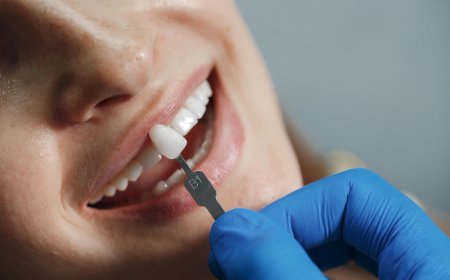Is Therapy Really Worth It? 5 Surprising Benefits Backed by Science

In a world where stress, anxiety, and emotional struggles are increasingly common, many people wonder:Is therapy really worth it?Some believe therapy is only for those with severe mental health issues, while others dismiss it as an unnecessary expense. However, scientific research consistently proves that therapy offers profound benefitsfar beyond just "talking about your feelings."
If you've ever questioned whether therapy could help you, this article exploresfive surprising, science-backed benefitsthat might change your perspective. Whether you're dealing with stress, relationship issues, or simply seeking personal growth, therapy could be the key to a healthier, happier life.
1. Therapy Rewires Your Brain (Literally!)
One of the most fascinating discoveries in neuroscience is that therapy canphysically change your brain structure. Studies using brain imaging (like fMRI scans) show that psychotherapy alters neural pathways, particularly in areas linked to emotion regulation and decision-making.
-
Cognitive Behavioral Therapy (CBT)has been shown to reduce hyperactivity in the amygdala (the brains fear center) while strengthening the prefrontal cortex (responsible for rational thinking).
-
Mindfulness-Based Therapyincreases gray matter density in the hippocampus, improving memory and emotional resilience.
This means therapy isnt just "talk"its a powerful tool forrewiring negative thought patternsat a biological level.
2. It Boosts Physical Health (More Than You Think)
Mental and physical health are deeply connected. Research shows that therapy can lead to:
-
Stronger Immune System:Chronic stress weakens immunity, but therapy reduces cortisol levels, helping your body fight illnesses better.
-
Lower Risk of Heart Disease:Studies link untreated depression and anxiety to higher cardiovascular riskstherapy mitigates these effects.
-
Better Sleep:Insomnia often stems from anxiety; therapy techniques like relaxation training improve sleep quality.
Therapy isnt just for the mindits aholistic health booster.
3. Improves Relationships (Even If You Go Alone)
Many assume couples counseling is the only way therapy helps relationships, butindividual therapyalso enhances social connections. Heres how:
-
Emotional Intelligence Growth:Therapy helps you understand emotions (yours and others), leading to healthier interactions.
-
Breaking Toxic Patterns:If you struggle with trust, communication, or conflict resolution, therapy identifies and changes these habits.
-
Setting Boundaries:Learning to say "no" and prioritize self-respect improves all relationships.
Even if your partner or family doesnt attend, your personal growth createspositive ripple effectsin every relationship.
4. Increases Productivity & Financial Success
Mental health directly impacts professional performance. A study by theWorld Health Organization (WHO)found that depression and anxiety cost the global economy$1 trillion per yearin lost productivity. Therapy counteracts this by:
-
Reducing Procrastination:Addressing underlying anxiety or perfectionism helps you take action.
-
Enhancing Focus:Techniques like mindfulness improve concentration and decision-making.
-
Preventing Burnout:Therapy teaches stress-management skills, increasing long-term career satisfaction.
Investing in therapy isnt an expenseits ahigh-return investmentin your success.
5. Its More Accessible Than Ever (No More Stigma!)
Therapy used to be seen as taboo, but today, itsnormalized and accessible:
-
Online Therapy:Platforms like BetterHelp and Talkspace offer affordable, flexible sessions.
-
Sliding Scale Options:Many therapists adjust fees based on income.
-
Short-Term Approaches:Not all therapy requires years; solution-focused methods show results in weeks.
With mental health awareness rising, seeking help is now asign of strength, not weakness.
Final Thoughts: Is Therapy Worth It? Absolutely.
Therapy isnt just for crisesits aproactive toolfor growth, health, and happiness. From reshaping your brain to boosting your career, the science is clear:the benefits are real, measurable, and life-changing.
If youve been on the fence, consider this your sign to take the first step. Your future self will thank you.
Gjdsis committed to promoting mental well-being through insightful, research-backed content. For more tips on health and self-improvement, explore our resources today!





































